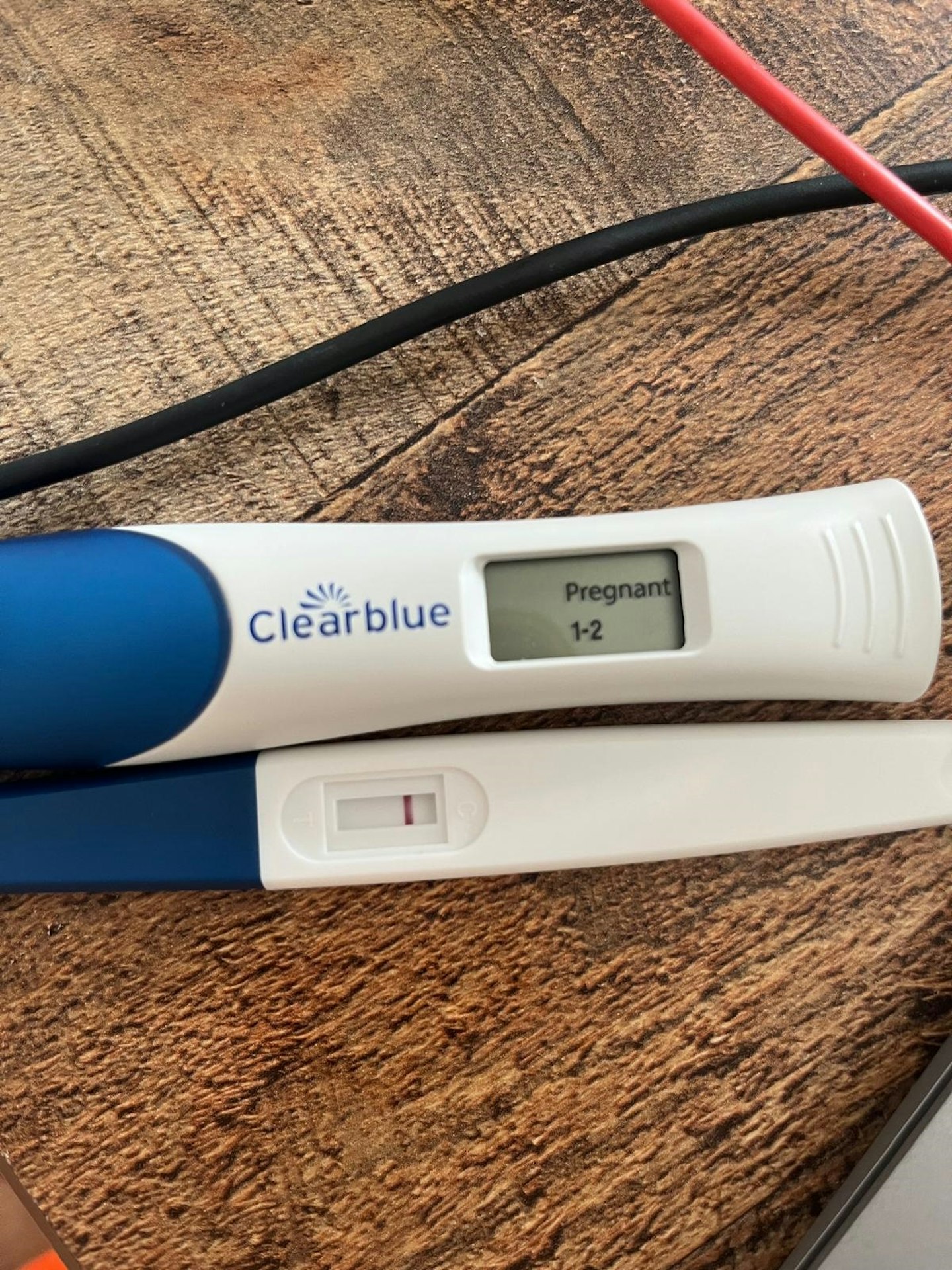When you suspect you might be pregnant, seeing a faint line on a pregnancy test can be confusing and even nerve-wracking. You might find yourself staring at the pregnancy test, wondering, "Am I really pregnant or not?" But in most cases, a faint line does mean you're pregnant—the result is positive.
Some tests may return a very clear and obvious result, whereas with others, you may find you can barely make out the line. Pregnancy tests from different brands may also differ in terms of how they look, and similarly, expensive pregnancy tests might offer different features compared to cheap pregnancy tests.
Once you've done the test, if all you can see is a faint line, you might be unsure whether you are pregnant. Fear not—we are here to explain what that faint line suggests!
Why is the line faint?
Pregnancy tests work by measuring the levels of the hormone human chorionic gonadotropin, hCG, in your urine.
Pregnancy tests are becoming more advanced, and some can detect pregnancy earlier. When you take a pregnancy test, it is essential, as it plays an important part in the result you get. The line could be faint because the hormone levels are low, but it is still enough for the test to detect hCG.
The volume of hCG in the body depends on how far along you are, so a faint line is most likely suggesting that you are at the very early stages of pregnancy (meaning it has only been a few days since the semen fertilised the egg), but it is still a positive pregnancy test result - it just means you're still in the early pregnancy stages.

If you're in any doubt, double check you've done the test properly by doing another one by weeing in a clean plastic cup first and then placing the tip facing down in the cup. Most pregnancy tests will give instructions on how long to leave the test in a cup or in your urine stream to get an accurate result.
Can a faint line indicate no pregnancy?
If there is a somewhat visible line on the pregnancy test results, no matter how faint, it is very likely that you are pregnant. Most instructions provided with the tests will explain the possibility of a faint line and what it means, and in most cases, it will result in a positive result.
False positives only tend to occur if:
1. The test has been done incorrectly (the weeing in a cup tip helps make it more accurate, not to mention easier and less messy to do!)
2. The test is out of date
3. You read the test after the wait time indicated on the packet, causing an evaporation line - a slight streak that appears after a negative test has dried
4. You have a medical condition that is altering the levels of hormones in your urine (certain fertility treatments may alter your concentrations of hCG so it is a good idea to check this with your doctor)
Digital VS. Standard pregnancy tests

If a digital pregnancy test says you're pregnant, but there's no line on a standard pregnancy test, it can be puzzling. Here are a few potential reasons for the difference:
Sensitivity Differences: Digital pregnancy tests can often be more sensitive than standard line tests. This means they may detect lower levels of the pregnancy hormone hCG earlier than traditional tests, which could explain why one shows positive while the other doesn't.
Testing Too Early: If you're testing very early, the hCG level might be just high enough for the digital test to pick up but not high enough to produce a visible line on a standard test.
Diluted Urine: If your urine is diluted (from drinking a lot of fluids), it can lower the concentration of hCG, making it harder for a standard test to show a line, while the digital test, being more sensitive, still gives a positive result.
Faulty Test: It's also possible that the standard test could be faulty or expired, leading to no result even if you are pregnant.
What should I do if I get a faint line on a pregnancy test?
One simple option is to do a second test a few days later which should hopefully provide you with a much clearer and stronger result.
If you get a negative result and still think you're pregnant, wait a few days and try again. Speak to your GP if you get a negative result after a second test but your period has not arrived.
If you're still struggling to get a clear reading, speak to your GP about having a blood test. Doctors offer two types of blood test, one very similar to the pregnancy test at home which just analyses whether pregnancy hormones are present, and a quantitative blood test (or the beta hCG test). This is a more accurate test as it measures the exact amount of hCG in your blood, even if the levels of hCG are very low.
Hannah Carroll is our Senior Parenting, Lifestyle and Home Product Writer. In her capacity, she curates top-notch listicles, crafts insightful how-to guides, and delivers expert product reviews. As a mother of three, Hannah draws upon her comprehensive understanding of all facets of family life to bring true insight into all the products that make running a home easier.
